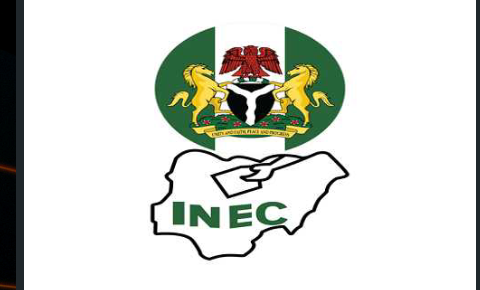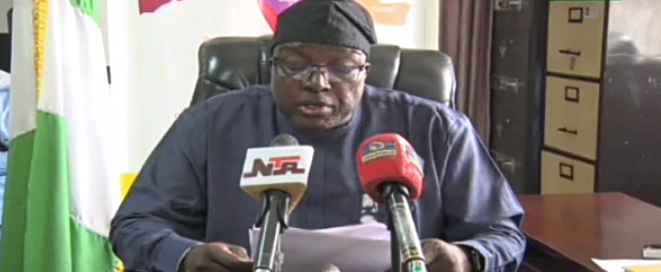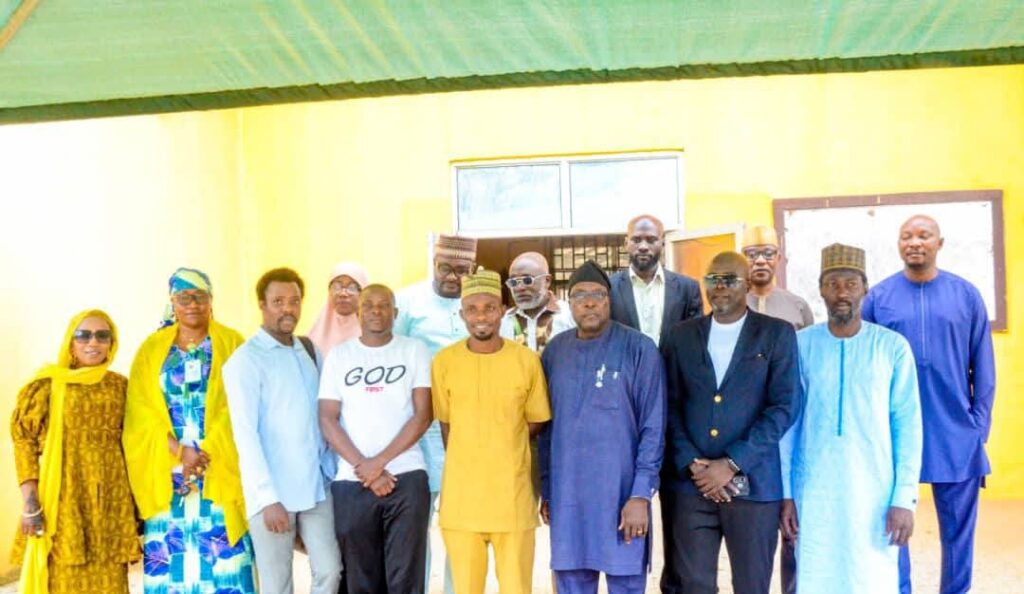
By Victor Babayemi August 5, 2025
As Nigeria moves closer to the 2027 general elections, the Independent National Electoral Commission, INEC has launched a grassroots initiative geared towards increasing voter participation in Kwara State.
The new Resident Electoral Commissioner, REC in the state, Mr. Hale Longpet, during a news conference, affirmed that he was determined to deepen democratic engagement, especially among young and first-time voters.
He revealed a strategic rollout of Continuous Voter Registration, CVR which will begin online from August 18, followed by in-person registration on August 25 across the state’s 16 local government areas and the INEC state office.

“Many young Nigerians have come of age since the last voter registration in 2022; this is a critical opportunity to bring them into the democratic process,” Longpet emphasized.
Currently, Kwara State has 1,695,927 registered voters, with a 90.6% PVC collection rate; though
the REC believes these numbers fall short for a state of Kwara’s demographic and political significance.
“We’re not just registering names; we’re building participation. My legacy will be to leave Kwara with a more vibrant and involved electorate,” he stated.
The CVR will accommodate new voters who just turned 18, citizens relocating to new polling units, and those needing to replace lost PVCs or correct data errors.
Mr. Longpet also assured that previously uncollected PVCs will be available at registration centres to ease the process for eligible voters.
As part of his engagement plan, the REC announced a sensitization tour of all the 16 Local Government Areas of Kwara, including the riverine and other areas marked as hard-to-reach.
He noted that while the registration starts at local government headquarters, expansion to ward levels may follow, depending on the turnout and logistics.
“We understand the terrain of Kwara, [and] If needed, we will decentralize further, just as we did in previous exercises,” he said.
As part of efforts to address the persistent issue of voter apathy, Mr. Longpet highlighted INEC’s adoption of technologies such as the Bimodal Voter Accreditation System, BVAS, which helps eliminate irregularities and boost public confidence in the electoral umpire.
“The idea that votes don’t count is not only false; it’s dangerous. INEC’s systems are designed to protect the integrity of every ballot,” he insisted.
He also gave an assurance that security will be provided during the registration exercise in collaboration with the Interagency Consultative Committee on Election Security, ICCES.
He also disclosed that INEC will partner with the National Orientation Agency, NOA, traditional leaders, civil society organizations, and the media to ensure wide public awareness.
On broader electoral issues, Mr. Longpet clarified that INEC cannot declare legislative seats vacant after political defections without notification from the legislative body involved, and clarified that local government elections fall under the jurisdiction of State Independent Electoral Commissions, SIECs, not INEC.

Longpet with reporters
He revealed to the newsmen that INEC has made submissions to the National Assembly making a case for electoral reforms such as diaspora voting and early voting for electoral officials, but expressed concerns about the current limitations of electronic voting due to network challenges in some areas.
“We want to move forward, but there are places in Nigeria where there’s zero network, [and] until that changes, full electronic voting remains a future goal,” he explained.
Editing by Sola Rotimi

